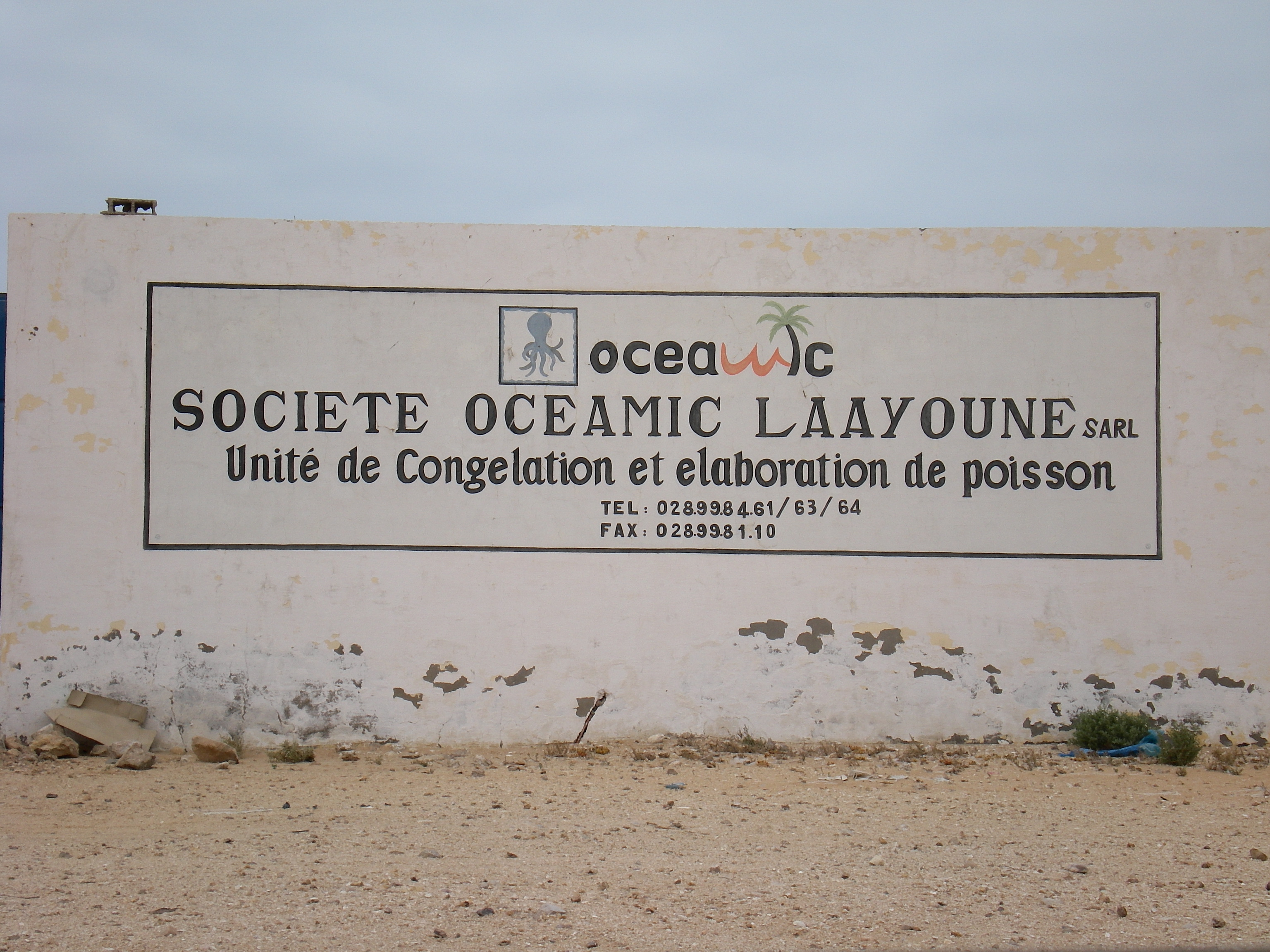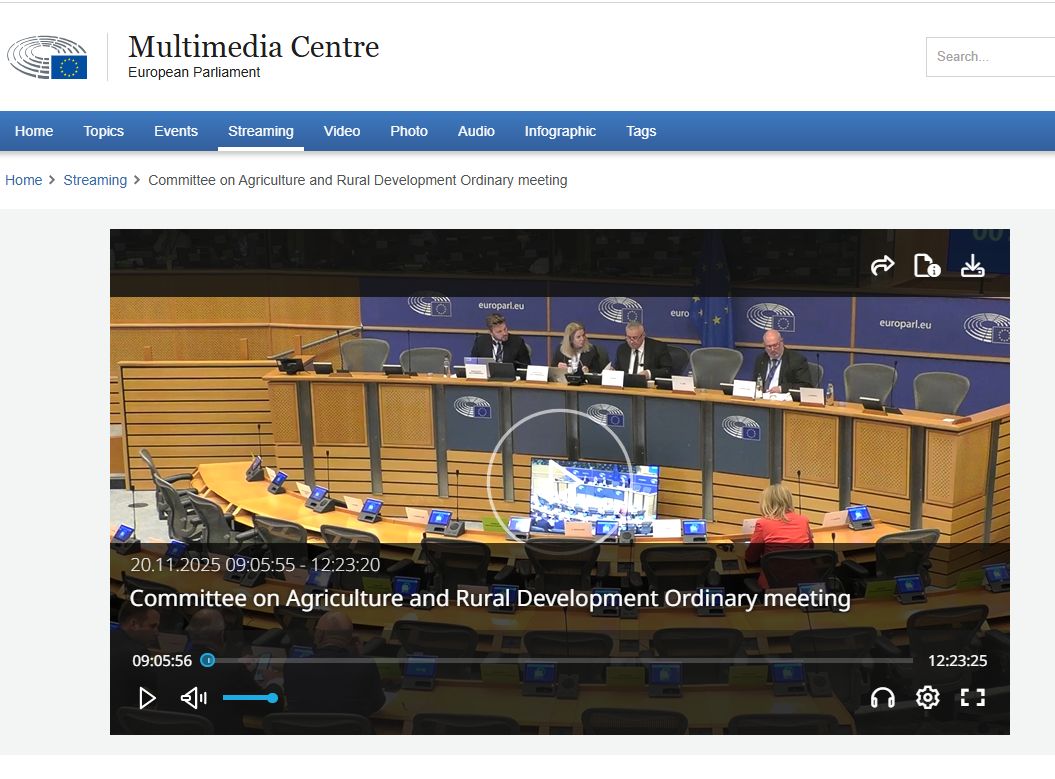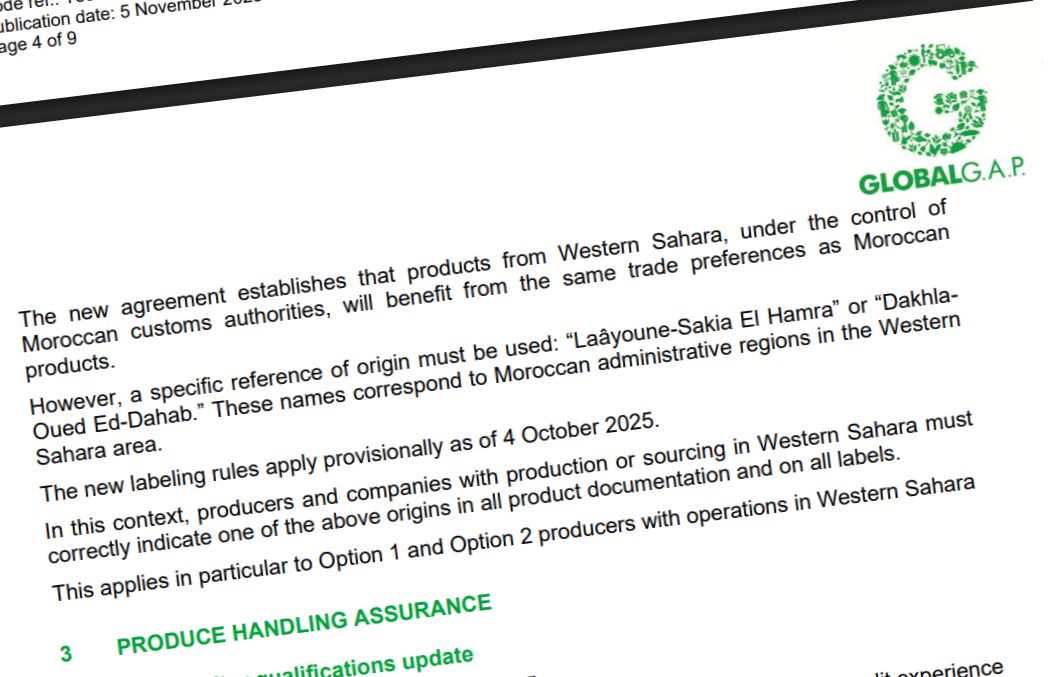
What should we expect from the EU institutions, the member states and the businesses now as David beat Goliath in the EU Court of Justice? WSRW has carved out some suggested steps.
Photo: @ElliLorz. Two workers walking to a plantation near Dakhla, occupied Western Sahara.
The Saharawi people today won on all fronts in the EU Court of Justice. The EU and Morocco can no longer continue its plundering of the resources of occupied Western Sahara.
So now what?
This is what Western Sahara Resource Watch (WSRW) recommends:
To the European Union:
- To immediately engage in exploratory talks with the Polisario Front for the development of legally compliant bilateral ties with the territory, notably as regards trade and fisheries;
- To adopt a strict EU policy of differentiation between the territories of Morocco and Western Sahara across the spectrum of EU dealings that ensures EU compliance with its legislation and jurisprudence regarding the separate and distinct status of Western Sahara and the required consent of the Saharawi people;
- To publicly acknowledge and to apply the law of occupation in accordance with the EU Guidelines on International Humanitarian Law in its dealings with the territory of Western Sahara;
- To include a territorial clause in all EU agreements with Morocco, explicitly excluding Western Sahara; to adopt a legal definition of the “territory of Morocco” in all EU legal acts in accordance with the case-law of the CJEU territorial scope in all EU legal acts;
- To suspend all current and planned funding from the EU and Member States that directly or indirectly contributes to strengthening Morocco’s policy of annexation and demographic engineering in the territory; to request from Morocco the reimbursement of all past and current funding unlawfully granted by the EU in relation to Western Sahara;
- To seize the EU Anti-Fraud Office (OLAF) in relation to unpaid customs duties by EU-based importers accrued from the unlawful application of the EU-Morocco Association agreement since 2000;
- To establish a Trust Fund as a first step towards reparation to the Saharawi people for the damages caused by its decades-long policy of illegal trade and other arrangements which unlawfully benefited to the occupier, Morocco.
- To appoint an EU Special Representative for Western Sahara;
- To actively support the resumption of the UN-led conflict resolution efforts and to insist that the UN Mission (MINURSO) is granted a human rights mandate;
- To support Saharawi civil society organizations and human rights defenders in the occupied territories and in the refugee camps;
- To develop public diplomacy towards the Moroccan public to explain its policy towards Western Sahara.
To the European Commission and European External Action Service:
- To carry out a comprehensive mapping of EU relations with Morocco (including diplomatic ties, trade, technical assistance and cooperation development) and ensure EU compliance with EU legislation and jurisprudence with regard to Western Sahara;
- To monitor Moroccan compliance with EU differentiation requirements in accordance with the European Commission’s duty, as the Guardian of EU treaties, to monitor the proper implementation of EU law;
- To exclude the certification of origin by the Moroccan body ONSSA within its authorized lists of any establishment that is located outside of Morocco’s internationally recognised borders;
- To review and ensure compliance of the lists of approved establishments in Morocco and to exclude any establishment located in Western Sahara from such lists;
- To exclude sanitary and food safety certificates issued by Moroccan authorities for products produced in Western Sahara;
- To allow establishments to export from the territory of Western Sahara only if the Polisario Front has agreed to it on behalf of the Saharawi people;
- To apply third country duties to imports from Western Sahara into the EU and adjust the TARIC system accordingly;
- To instruct the national authorities in EU Member States to verify the origin of products imported from Morocco, and - if in reality originating in Western Sahara - deny entrance in these cases of false origin declarations;
- To instruct the national authorities in EU Member States to verify the correct labelling of products imported from Western Sahara and ensure that they indicate Western Sahara alone as the country of origin of those goods, to the exclusion of any reference to Morocco. To take immediate action in case of mislabelling.
- To adopt EU-level business guidance that informs European companies about business activities in occupied territories, including on the severe financial risks involved in relying on agreements, contracts, permissions, sanitary and phytosanitary inspections by the Moroccan occupying forces that are legally null and void.
- To support local civil society monitoring of future EU-Western Sahara trade agreements.
To publicly acknowledge its responsibility in leading the EU into unlawful arrangements with Morocco in relation to Western Sahara, and to publicly apologise to the Saharawi people for such misguided policy and to commit to non-repetition. To sanction the senior civil servants responsible for this legal and political fiasco.
To the European Parliament:
- To monitor and ensure the strict and full compliance by the EU Commission and Member States with the rulings of the EU Court of Justice, including through an annual review process.
- To request an immediate hearing on the practical consequences of the ruling in the relevant committees, namely INTA, PECH,AGRI, JURI and AFET.
- To request an assessment by the Commission of the financial implications of the Court ruling notably in terms of the potential compensation claims by the Saharawi people and by EU economic operators.
- To request a report by the Commission on the legal costs entailed for the EU during years of unnecessary and unjustified legal proceedings in Court, since the first ruling from the European Court of Justice in 2015.
- To initiate a special enquiry into the impact of the Moroccogate on the handling by Parliament of all the files related to Western Sahara, including the adoption by a strong majority of both agreements, which were subsequently struck down as illegal.
- To initiate a special enquiry into the repeated and serious legal shortcomings of the Commission in the handling of EU trade relations applicable to Western Sahara.
- To hold to account the European Commission for wittingly misleading the European Parliament and Member States of the proposed - and now annulled - agreement.
- To carry out a mission to Western Sahara in order to review EU bilateral trade with the territory.
- To carry out a mission to the refugee camps in Algeria in order to establish a fact finding mission as regards the humanitarian and other needs of the Saharawi people and to set the basis for a reset of EU relations with the Saharawi people and the unresolved Western Sahara question
To the Governments of EU states allowing imports from occupied Western Sahara, particularly France, Spain, the Netherlands and Germany,:
- To ensure the correct labelling of goods from Western Sahara which must indicate Western Sahara alone as the country of origin of those goods, to the exclusion of any reference to Morocco. To take legal and administrative measures to ensure compliance with this obligation.
- To advise its nationally registered and operating companies to stop importing products from Western Sahara and to seek alternative suppliers;
- To request the Commission to ensure that all its policy dealings with Western Sahara are compliant with EU legislation and jurisprudence, notably with regard to the DG SANTE lists in order to exclude Western Sahara establishments from Morocco’s list.
To local and regional authorities:
- To encourage national authorities to initiate the needed measures in the EU in order to ban imports of goods from Western Sahara, without the consent of the Saharawi people, until the realisation of self-determination has been achieved.
To importing companies:
- To immediately end all purchasing of products exported from occupied Western Sahara without the consent of the Saharawi people.
To customers of importers of Western Sahara produce:
- To immediately stop purchases of produce exported from occupied Western Sahara without the consent of the Saharawi people, and switch to suppliers that show respect for EU law and corporate responsibility.
- To identify and report incorrect labelling of goods from Western Sahara to national authorities and to civil society solidarity groups.
To the Moroccan authorities:
- To immediately suspend the application of all agreements concluded with the EU in relation to Western Sahara;
- To seek the authorization of the Polisario Front in order to ensure the respect of the consent of the Saharawi people in relation to any dealings with the territory and its natural resources;
- To repatriate all national institutions and agencies, including certification bodies such as the ONSSA office, established in Western Sahara;
- To comply with international human rights and international humanitarian law in relation to Western Sahara;
- To allow international observers, notably human rights monitors, independent media and international and regional organizations, into the territory of Western Sahara;
- To ratify the African Charter on Human and Peoples’ Rights and the Protocol establishing the African Court on Human and Peoples’ rights;
- To engage in good faith in UN-led peace talks with the Polisario Front, with a view to realizing the exercise of self-determination in Western Sahara through which the people of the territory can freely choose the status of the land from all available options, including independence.
Since you're here....
WSRW’s work is being read and used more than ever. We work totally independently and to a large extent voluntarily. Our work takes time, dedication and diligence. But we do it because we believe it matters – and we hope you do too. We look for more monthly donors to support our work. If you'd like to contribute to our work – 3€, 5€, 8€ monthly… what you can spare – the future of WSRW would be much more secure. You can set up a monthly donation to WSRW quickly here.
New report: Certified occupation
International certification standards embellish Morocco’s controversial trade with fisheries and agricultural products in occupied Western Sahara, new report documents.
BRCGS fails accountability test
Despite repeated requests, the organisation does not clarify why its food safety certificate ignores legal boundaries.
Commission under fire for Western Sahara origin derogation
Representatives from all political groups in the European Parliament today grilled the European Commission over bending EU rules to appease Morocco with regard to labelling of products from occupied Western Sahara.
GLOBALG.A.P. misleads EU retailers
The certification scheme that claims to champion legal compliance has circulated misleading information about EU labelling rules for products originating from occupied Western Sahara.



